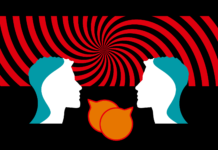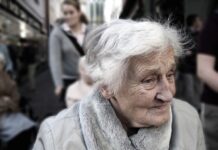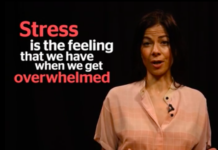Outcomes of Childhood Bullying on Young Adults’ Wellbeing
A qualitative study explores young adults’ childhood bullying experiences.
Social Inclusion and Stipend Enhance Recovery, Study Suggests
A new study explores the benefits of a befriending program in the recovery of those with “enduring mental illness.”
Landmark Schizophrenia Study Recommends More Therapy
Results of a large government-funded study call into question current drug heavy approaches to treating people diagnosed with schizophrenia. The study, which the New York Times called “by far the most rigorous trial to date conducted in the United States,” found that patients who received smaller doses of antipsychotic drugs with individual talk therapy, family training, and support for employment and education had a greater reduction in symptoms as well as increases in quality of life, and participation in work and school than those receiving the current standard of care.
Eat Breathe Thrive: Chelsea Roff on Eating Disorders, Trauma, and Healing with Yoga and...
Chelsea Roff is the Founder and Director of Eat Breathe Thrive (EBT), a non-profit with an inspired mission to bring yoga, mindfulness, and community support to people struggling with negative body image and disordered eating. I reached out to Chelsea to learn more about her life and organization, which she writes, “…is like AA for people with food and body image issues, plus yoga and meditation.” Chelsea shared her journey from life as a patient to yogi, author, and innovative community organizer. With her permission, you can find this interview below.
Providing Trauma Informed Brief Counseling to College Students
Recommendations on how to provide trauma-informed, short-term counseling to college students who have experienced sexual assault and interpersonal violence.
Social Prescribing May Improve Self-Esteem and Mental Well-Being
Systematic review suggests social prescribing benefits individuals with mental and physical health issues, but more program evaluations are needed.
Early Attention to Life Circumstances and Relationships Improves Outcomes for Psychosis
Coordinated care with employment support and family therapy leads to superior outcomes for those diagnosed with psychotic disorders.
Screen Time Linked to Increased Depressive Symptoms Among Teens
New study examines how increased screen time and social media may be contributing to depressive symptoms and suicide risk in teens
The Recovery After an Initial Schizophrenia Episode (RAISE) Study: Notes from the Trenches
I was a psychiatrist who participated in the Recovery After an Initial Schizophrenia Episode Early Treatment Program (RAISE ETP). Although I welcomed the positive headlines that heralded the study's results, the reports left me with mixed feelings. What happened to render the notion that talking to people about their experiences and helping them find jobs or go back to school is something novel?
An “Epidemic of Anguish” on College Campuses?
The Chronicle of Education has called the soaring rates of anxiety and depression among college student an “Epidemic of Anguish.” PBS interviews Jennifer Ruark, the editor of the Chronicle series, and Micky Sharma, the director of counseling at Ohio State University. Ruark reports that about “1 in 4 students reporting to campus counseling centers now are already on some kind of psychotropic medication.” Sharma adds that “just because a student is crying does not mean he or she needs psychotherapy. Sometimes that’s actually the type of emotional response that I would want to see.”
Study Challenges Assumption that Schizophrenia Impairs Cognitive Ability
Secondary factors may impair performance on cognitive tasks, making it difficult for individuals diagnosed with schizophrenia to perform to the best of their ability.
Do We Really Need Mental Health Professionals?
Professionals across the Western world, from a range of disciplines, earn their livings by offering services to reduce the misery and suffering of the people who seek their help. Do these paid helpers represent a fundamental force for healing, facilitating the recovery journeys of people with mental health problems, or are they a substantial part of the problem by maintaining our modestly effective and often damaging system?
What is Loneliness And How Can it be Addressed?
As an increasing amount of research seeks to address the epidemic of loneliness, conceptual clarity is needed.
Discrimination Leads to Mental Distress for Gender Diverse People
Researchers seek to identify adaptive coping responses to discrimination for the transgender and gender diverse community.
Researchers Test Harms and Benefits of Long Term Antipsychotic Use
Researchers from the City College of New York and Columbia University published a study this month testing the hypothesis that people diagnosed with schizophrenia treated long-term with antipsychotic drugs have worse outcomes than patients with no exposure to these drugs. They concluded that there is not a sufficient evidence base for the standard practice of long-term use of antipsychotic medications.
Many Foster Kids Are Still Being Prescribed Antipsychotic Drugs
Many experts expressed concern when the rate of antipsychotic prescriptions to children in foster care showed a rapid increase, peaking in 2008, and new recommendations and policies have tried to curb the use of these drugs. While the rate has plateaued, a new study points out that the “new normal” prescription levels are still dangerously high. The data reveals that almost one in ten children in foster care are currently being prescribed antipsychotic drugs with dangerous side-effects, many for diagnoses like ‘ADHD’ and disruptive behavior.
New Medications Fail to Show Efficacy for Alzheimer’s Disease
Three phase III clinical trials assessing the efficacy of Lundbeck’s investigational drug idalopirdine for Alzheimer’s disease have failed
Why Lifestyle Tips Won’t Cure the Mounting Stress People Face
From The Independent: Mental health awareness campaigns inundate us with lifestyle tips for managing stress such as mindfulness, meditation, exercise, and nutrition. But these tips...
Agency and Activism as Protective Factors for Children in the Gaza Strip
Researchers recommend a ‘politically-informed focus', including activism, when assessing children and designing interventions in areas of chronic political violence.
“Why So Many Smart People Aren’t Happy”
The Atlantic interviews Raj Raghunathan about his new book, If You’re So Smart, Why Aren’t You Happy? “If you were to go back to the...
Einstein, Social Justice and The New Relativity
To create his theory of relativity, Einstein had to see things differently. He used imagination and empathy to come to know a new 'reality' of existence. In this essay, we delve deeply into the nature of human experiences that lead to public concern and discover ourselves in a whole new realm.
Stop Chasing the Drug, Focus on ACEs
From ACEs Connection: According to Dr. Daniel Sumrok, director of the Center for Addiction Sciences at the University of Tennessee, addiction is a normal response to...
Review Reinforces Social Connection as Protective Health Factor
Is a lack of social connection in the US harmful to health? In a review of social connection and health literature, researcher calls for a societal shift in values towards interdependence.
How Loneliness Begets Loneliness
From The Atlantic: Loneliness is a serious health threat that is as dangerous as smoking. Social isolation often causes people to have difficulty reaching out...
Interventions that Promote Disclosure Among Voice-Hearers
The perspectives of the voice-hearers featured in the research underscore that stigma and negative perceptions of voice hearing present significant obstacles within early intervention programs.

























